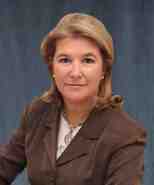Rising to the Challenge: Board Dynamics in Difficult Times
The Covid crisis has posed significant challenges to companies, managers and directors over the past year. The role played by the board of directors is particularly relevant at this time, and directors are under pressure to add value through their experience and ability to work as a team. Pedersen & Partners is aware of this challenge, and our involvement in search and evaluation projects for boards of directors has allowed us to observe an array of corporate governance best practices in companies of diverse sizes and sectors: family-owned, listed, and owned by private equity fund managers.
During these meetings and conversations, we have spoken with directors and discussed the key factors that make a difference in the board’s functioning, and its capacity to add value to the business. In this document, we analyse the business impact of the structure of the board, the leadership of the CEO and the chair of the board, and the competences and personal characteristics of the directors.
Board dynamics
- There is consensus among non-executive directors and chairs of the board that in times of uncertainty, the role and prominence of the board of directors are more important than ever. These are the times when the board of directors must engage in a new style of leadership: where it is necessary to define new business models and strategies which will help management to lead the company’s transformation and confront the challenges of the market. The board must become more involved in the business and will need to make difficult decisions when necessary. The independence of the directors becomes essential, and the board’s role in providing oversight and support for the management team is more important than ever.
- The board must anticipate the need for new business models, adopting proactive action to develop a clear long-term vision, ensuring business continuity while defending the interests of the shareholders, and supporting the management team. Effectiveness and efficiency are the cornerstone of a healthy board dynamic: fluent communication, the ability to make quick decisions, and the capacity to integrate short-term ideas into strategic planning. The more efficient the board of directors, the better governed the company will be, and this will translate into value creation and sustainable growth.
- As the challenges develop, boards of directors must work under new scenarios. Speed is now of the essence in making strategic, organisational and corporate decisions, and the board must play a vital role as watchdog for the management, and defender of the shareholders and their interests. Consensus is no longer enough, and the directors must lose any reluctance to make challenging arguments or take difficult decisions, even going against the management team where necessary, with a vision of “productive disagreement”. Some directors maintain that in highly competitive and uncertain environments, taking conflicting positions is in fact beneficial for the business.
- In large companies, the role played by the board committees is increasingly relevant in an environment of uncertainty, allowing key topics to be discussed in greater depth and specialisation. In addition to the standard Audit, Appointments, and Remuneration Committees, other committees are convened to tackle new relevant issues in depth, such as the Technology, Risks, Strategy, and Sustainability Committees. Working committees gain significance as they become the venues for independent directors to debate issues, and it is there where decisions that the board must then sign off on are dealt with in greater depth. Some companies rotate their directors through the working committees.
- Directors must dedicate increasing amounts of time to their boards and are generally unable to serve on more than three or four boards simultaneously. This practice is known as director over boarding, and over boarded directors are unfortunately common in some sectors. Participation in the board committees requires a high level of preparation and dedication, strengthening the relationship with the management team.
- A special relevance is ascribed to the chair of the board, and his or her influence on the board’s dynamics. A chair who wants to add value must encourage the other directors to contribute significantly, and if both the CEO and the chair of the board exercise good leadership, a good working dynamic will be established.
The director’s contribution: what profile and competencies are in demand?
One objective of the board of directors is to support the management team, with the directors contributing their experience to generate ideas and alternatives, to transmit trust and to achieve strategic strength. Directors are in a good position to look for creative solutions, contributing from their different points of view to set a new course for the company.
- The competencies of a well-balanced board are diverse and complementary in knowledge and skills, providing a range of experiences.
- The profile of the directors will necessarily change and develop with the company’s needs. Directors with a solid executive trajectory, character and personality are able to make significant contributions that help with complex decisions. Likewise, it is important that the directors have a strategic vision, independent judgment, diversity of thought and the ability to question issues while remaining loyal to the company, with a high commitment and dedication.
- A strong board of directors should have a well-balanced matrix of competencies providing a diversity of knowledge and experience.
- The board will be more effective when directors have management experience. In particular, the credibility and value of the board will be greater if it includes directors who have held top-level positions which allow them to deal with complex situations and provide a medium-term vision from their own experience.
- The uncertain environment demands a courageous attitude. Directors must be able to engage with flexibility, agility, adaptability and anticipation.
- For the avoidance of conflicts of interest, it is particularly important that the directors must be independent in nature. Financial independence is highly valued, while high remuneration is a threat to the director’s independence. Truly independent directors should be willing to resign if they do not agree with the company’s policies or actions.
Co-authors:
Elisa Martinez de Miguel is a Senior Consultant at Pedersen & Partners and has been with the firm since 2011. Prior to joining the firm, Ms. Martinez de Miguel worked for over twelve years in the Executive Search industry as a Partner with Neuman International and has a wealth of knowledge and expertise in leadership consulting, change management, and corporate process redesign, particularly focusing on Recruitment and Evaluation, as well as coaching and management development. In addition, she is a member of the Industrial Practice Group and also has strong expertise in Board of Directors. Before joining the Executive Search industry, Ms. Martinez de Miguel spent six years at an Industrial Group, as a Manager in charge of Corporate Resources. Ms. Martinez de Miguel holds Law, Master’s in Economics and Legal Consultancy & Taxation degrees from the Instituto de Empresa in Spain (Senior Management Program) and completed Coach Training courses at CTI. She speaks native Spanish and is fluent in English.
Alvaro Arias Echeverria is the Partner in charge of Iberia and Latin America and the Global Head of the Private Equity Practice Group at Pedersen & Partners. With over 15 years of Executive Search experience, Mr. Arias Echeverria has successfully completed Private Equity assignments across Europe and Latin America, with mandates ranging from succession planning and high-opportunity sectors to value creation and portfolio management strategies. In addition, Mr. Arias Echeverria has a substantial track record of successful assignments in Retail, Industry and Energy, Financial Services, Healthcare, Telecoms, and IT, with a particular focus on due diligence processes and talent gap analysis. Prior to joining the firm, Mr. Arias Echeverria held senior positions as a Partner and member of the International Executive Committee of Neumann International and Principal at Egon Zehnder International. Before launching his Executive Search career, he was a Senior Manager at AT Kearney, and a Professor at IESE Business School. Mr. Arias Echeverria graduated as an Engineer from the Polytechnic University of Madrid. He holds an MBA from IESE Business School and has completed the Doctoral Program in Corporate Governance from the City University Business School in London. He speaks native Spanish, fluent English and conversational Portuguese.



